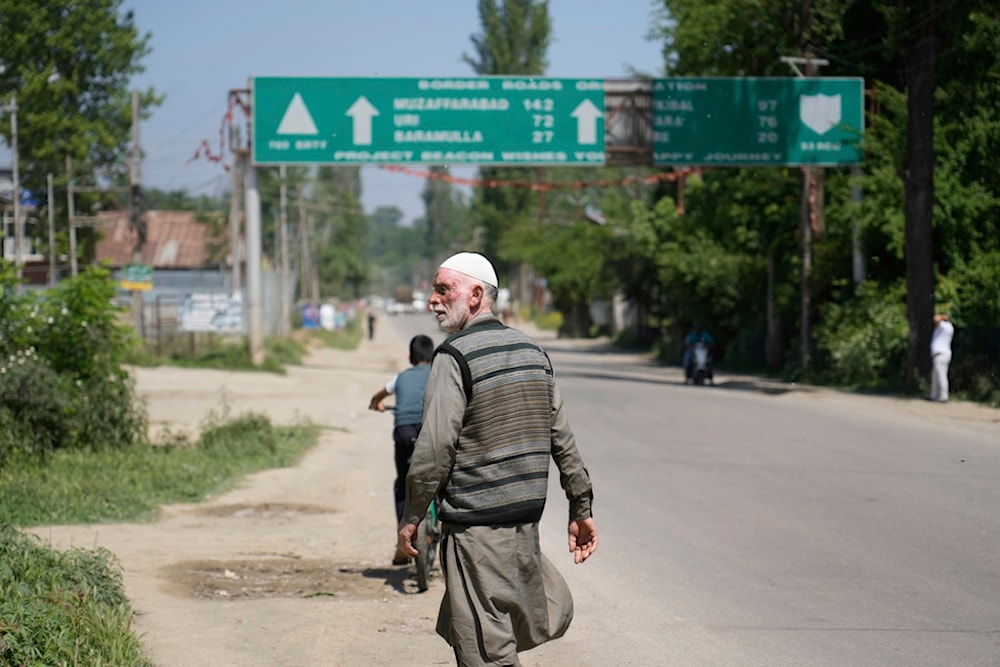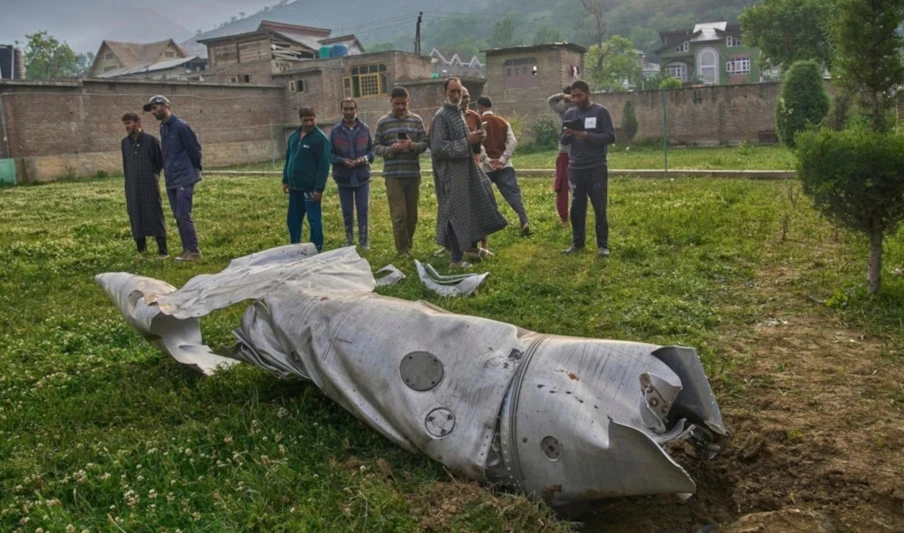Pakistan announces conclusion of Bunyanun Marsoos operation
The operation reportedly involved counter-terrorism measures, though specifics on targets and outcomes were not detailed.
-

An elderly Kashmiri man walks near a sign showing the distance to Muzaffarabad in Pakistan on the Srinagar-Muzaffarabad highway, after India and Pakistan reported no incidents of firing overnight, in Pattan in Indian controlled Kashmir, Monday, May 12, 2025 (AP Photo/Mukhtar Khan)
Pakistan's military announced on Monday the conclusion of Operation Bunyanun Marsoos, a large-scale counteroffensive launched in retaliation for India's military actions earlier this month.
Conducted on May 10, the operation falls under the broader conflict framework Islamabad refers to as Marka-e-Haq, according to a statement from the Inter-Services Public Relations (ISPR), the military's media wing.
Retaliatory offensive
The ISPR described the operation as a direct response to Indian strikes on May 6 and 7, which Pakistan says caused heavy civilian casualties. "The conduct of Pakistan Armed Forces Operation 'Bunyanun Marsoos', on 10 May 2025 as part of the military conflict Marka-e-Haq, was in response to Indian military's dastardly attacks that began on the night of 6 & 7 May 2025, resulting in the loss of innocent civilian lives, including women, children, and the elderly. Pakistan had vowed justice and retribution for the reprehensible Indian military aggression and brutal killings of our citizens," the statement read.
Beyond engaging Indian forces, Pakistani authorities noted that the operation also involved counter-terrorism measures, though specifics on targets and outcomes were not detailed.
Our heroes! Our Pride! We owe you immense respect 🫡 And of course a big shout-out to the leadership display of our #COAS #AsimMunir #PakArmedForcesZindabad pic.twitter.com/70qbzOotGl
— Zunaira Azhar (@ZunairaAzhar10) May 11, 2025
The latest flare-up in hostilities between the two nuclear-armed neighbors traces back to the April 22 suicide bombing near Pahalgam in Jammu and Kashmir, which killed 25 Indian citizens and one Nepalese national. India accused Pakistan's Inter-Services Intelligence (ISI) of orchestrating the attack, a charge dismissed by Pakistani Prime Minister Shehbaz Sharif.
In retaliation, India launched Operation Sindoor on May 7, deploying Rafale fighter jets and precision-guided munitions to target alleged militant infrastructure in Bahawalpur, Muridke, and Muzaffarabad. India claimed the strikes eliminated over 100 militants linked to groups like Jaish-e-Mohammed and Lashkar-e-Taiba. Pakistan, however, rejected these assertions, reporting that Indian missiles struck five civilian settlements, killing at least 31 people and causing extensive property damage.
#ISPR
— Pakistan Armed Forces News 🇵🇰 (@PakistanFauj) May 12, 2025
Rawalpindi, 12 May 2025:
General Syed Asim Munir, NI (M), Chief of Army Staff (#COAS), visited Combined Military Hospital (CMH) #Rawalpindi today to inquire after the well-being of soldiers and innocent civilians wounded during Marka e Haq / Operation Bunyanum Marsoos.… pic.twitter.com/cYZifMeI6o
The cross-border escalation triggered fears of a broader conflict, prompting calls for restraint from the international community. Under mounting diplomatic pressure, India and Pakistan agreed to a ceasefire on May 10, effective from 5:00 pm local time (11:30 GMT). Despite the truce, both sides remain on high alert, with military deployments and rhetoric indicating the fragile nature of the current calm.
Read more: Kashmir civilians return home as ceasefire brings uneasy calm

 3 Min Read
3 Min Read










